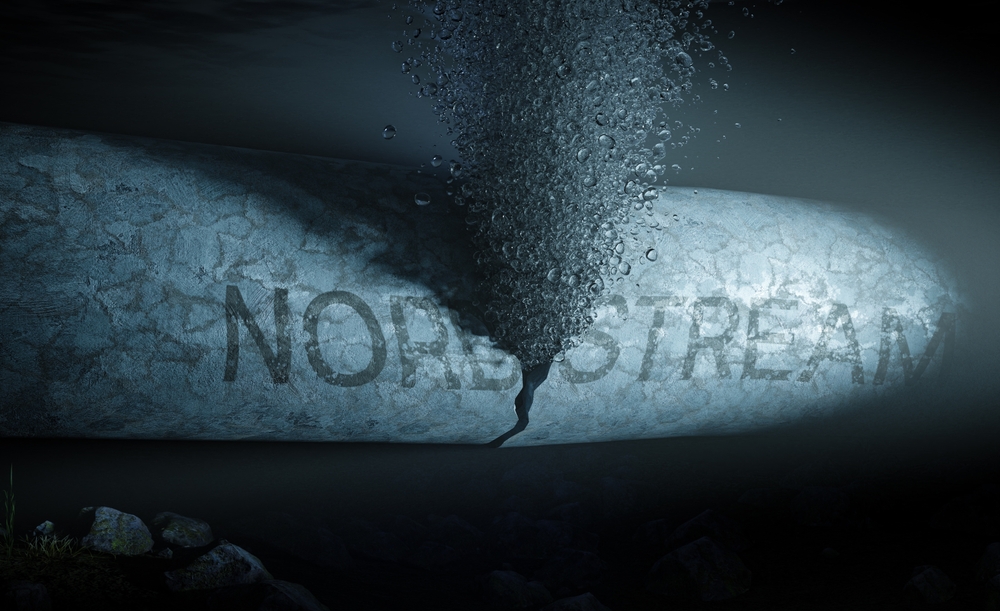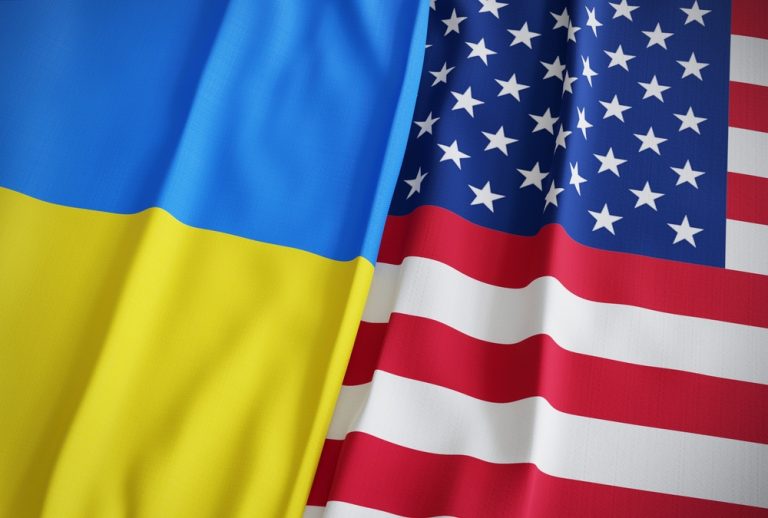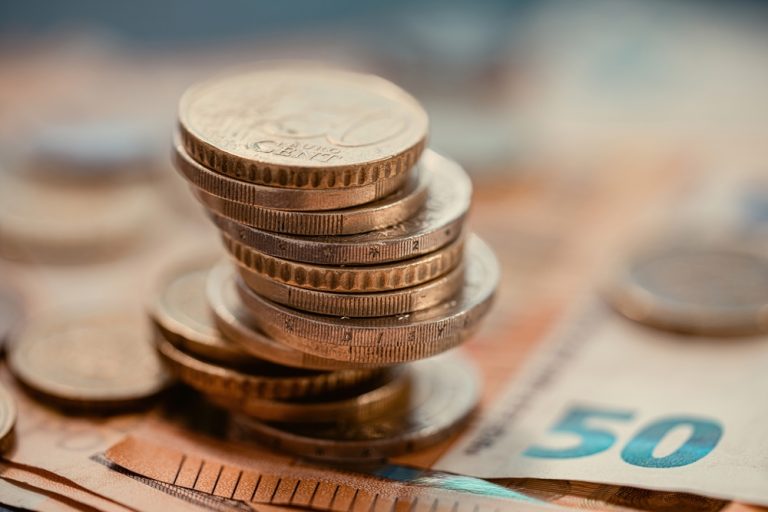
Explosions on Nord Stream as a method of fighting Scholz’s “double thinking”
Since the outbreak of the military conflict in Ukraine, German Chancellor Olaf Scholz has constantly tried to sit on two chairs when it comes to Russian gas supplies. He has always expressed his willingness to refuse to buy energy from the “evil empire”, which Russia became after February of this year, in solidarity with its allies from Europe and the United States. But at the same time, he was in no hurry to finally cut off the flow of “blue fuel”, so important for the FRG, and always kept the possibility to soften his words and actions so that in a crisis for his country’s energy sphere Vladimir Putin could provide him with a “gas prize”. He did not have to make such difficult and reprehensible maneuvers for the good of his life. We already found out earlier that the refusal to purchase gas from Russia was a spontaneous decision of the German government, which had no contingency plan forcing Scholz and company to pass all costs onto their own people. The search for alternative sources of gas, which were either prohibitively expensive or required rebuilding Germany’s entire infrastructure within a decade, did not help either.
This inconsistent policy was not without irritation watched the main “ally” of Germany – the United States. In the world comes a new “Cold War”, where NATO, led by the Americans, is going to confront not only Russia but also China and a number of other countries, claiming to change the world order. Moreover, this confrontation threatens to be much more violent than the one that shook the world in 1945-1991. Even then, during the first Cold War, the gas friendship between the USSR and Germany was a source of serious irritation for Washington. Today Europe is becoming a key strategic region for the U.S., and dependence on supplying resources to European countries from potential adversaries is simply not acceptable. Furthermore, the U.S. itself seeks a key position in the European gas market. For the sake of this, the U.S. authorities are even willing to sacrifice the interests of their own consumers and refuse to ban LNG exports to Europe, for which there is a serious public demand.

And then, on September 26, events occurred that could seriously influence Olaf Scholz’s final decision. One of the chairs he was sitting on broke a leg which may not be repairable. More precisely, there was an accident at the Nord Stream pipeline, from which Russian gas was flowing to Germany. The leakage took place almost simultaneously in four sections, and it is highly doubtful that the pipeline can be repaired at all, but even if it is possible, it will take more than a month or even a year. The German authorities have already officially stated that the three pipes of Nord Stream and Nord Stream 2 will permanently remain unusable after the incident. This means that if the energy crisis in Germany justifies the most negative forecasts, Russia will probably not be able to come to Scholz’s aid for technical reasons. The long and tedious haggling over the terms of supply and repair of turbines for the pipeline, which has been conducted by Russia’s Gazprom and the German government, is almost meaningless. Two simple questions arise: How could this happen and what should Germany do now?
In answering the first question, we make two important assumptions. First, one does not need to be an expert to understand that such massive destruction is unlikely to have resulted from an underground eruption or an attack by rabid herring swarms. Although, “competent experts” can, within the framework of a politically neutral version, come to any wildest conclusions. Secondly, like some officials who suggest that the disaster at Nord Stream was a purposeful sabotage after all, we cannot draw any technical conclusions, because, like the operator of this pipeline, we cannot conduct an on-site investigation. Nevertheless, we can assess the motives of certain potential “suspects”.
At the moment, the sabotage version is still the basic one. The German media was the first to report that the accident was not a natural disaster, and each time the potential scenario became more obvious. At first, German security authorities began to cautiously suspect that the pipes of the Nord Stream and Nord Stream 2 pipelines had been damaged by massive explosive devices. Later, Danish officials said at a NATO meeting that the Nord Stream and Nord Stream 2 pipelines were damaged by two explosions, each with a yield of about 500 kilograms of TNT. The British authorities have already indicated quite accurately that the incidents at Nord Stream could have been caused by an attack using underwater explosive devices that were remotely detonated. Finally, European Commissioner for Home Affairs Ylva Johansson said on the ZDF TV channel that “a certain state” may be involved in the Nord Stream incidents. What kind of state could that be? Most people thought of Russia and the United States.
Russia’s involvement in the explosions is highly questionable, even though a number of media, apparently as part of the information war, have begun to put forward the version that it is sending a “black mark” to European gas consumers in this way. Obviously, Russia could have made such a gesture without any explosions, simply by shutting off the valve. It is important to understand that Russia still gets a lot of money from gas exports, which are necessary to confront Ukraine. For Russian elites, the return of the pre-war status quo, where it was a reliable energy partner of the EU, is an ultimate dream, as expressed both in propaganda and in public statements by Russian officials. Vladimir Putin is also trying to use his dependence on Russian gas to put pressure on Ukraine by bringing it to the negotiating table with the Kremlin. Therefore, the non-functioning Nord Stream is a huge disadvantage for Russia in the implementation of these plans, and therefore Russia’s attack on it is highly unreasonable. This position was echoed by Thierry Mariani, a member of the European Parliament who is a good specialist on Russian politics. He ironically referred to Russia as a “strange state” that is “destroying its own gas pipeline instead of simply closing it, as has been done many times before.” Some objective facts also speak against the Russian trace, such as the fact that the nearest Russian ship was more than 90 kilometers away from the explosion at the time it allegedly took place.
The potential role of the United States in the incident is much more complicated. We have already written above about a wide range of geopolitical and economic motivations of this country to “block” Russian gas exports to Germany. Moreover, the desire to push the Germans into their own “energy embrace” may well have prevailed over caution in Washington. This is not just our speculation, but also the opinion of many media and experts, including American ones. For example, Fox News host Tucker Carlson thinks that U.S. President Joe Biden’s administration may have had something to do with the destruction of the Nord Stream pipes. He said the U.S. government announced back in February that they wanted to get rid of the pipeline that supplies Europe. Of course, one can refer to the fact that the Republican Fox News will say anything to damage Biden’s image, but this public opinion is nevertheless revealing. Roughly the same opinion is held by The American Conservative analyst Rod Dreher. He recalled that unlike Russia, the U.S. has a reason to take out the Nord Stream pipeline as President Joe Biden explicitly stated. He reminded about the American leader’s threat to stop Nord Stream-2 if Russia “invades” Ukraine. It’s also an amusing fact that the U.S. warned the German government a few weeks ago that attacks were being prepared on gas pipelines. Among the really comical “evidence” was a post by former Polish Foreign Minister Radoslaw Sikorski on his Twitter, where he wrote “Thank you, USA” under a photo of the crash site. Alas, it can no longer be seen – the post was prudently deleted. However, as we said, this is only speculation, and, paradoxically, only an investigation can prove anything, even if the results are known in 20 or 50 years.

It is time to answer the second, even more important question – what to do now to Olaf Scholz and the whole Germany, which, alas, cannot ignore the actions of its own chancellor. After the accident, he confidently stated that Germany, in spite of the events with Nord Stream, will be able to ensure its energy security. It is clear that this has nothing to do with the real state of affairs and is only populism to reassure the country’s population. In reality, the situation is extremely complicated and there is no doubt that the chancellor’s head is filled with very pessimistic thoughts. Scholz even had to admit that the German government’s mistake was not building the necessary infrastructure to import gas. Its fine to admit past mistakes, but what must be done today? At the moment there is a Russian pipeline that runs through Ukraine, but given the hostilities there, it can always be shut down for political or purely physical reasons. There is also the Norwegian pipeline Europipe II, which against the background of “explosive” events urgently subjected to technical inspection, but it cannot fully meet the needs of Germany.
In addition to the very physical availability of gas, prices are also high. Terrorist attacks and pipeline bombings are clearly not making it any cheaper. Despite numerous requests from public officials, German and European consumers are not anxious to save gas either. European private households and small companies have only increased their gas consumption in the fall for fear of a shortage in the winter. Gas problems are dragging the entire German economy down. As of September, annual inflation in Germany reached 10.1%, and expensive energy was the key contributor to the 44% price increase. Against the backdrop of domestic problems, the country is not left alone by its EU partners, who are used to Germany solving many of their problems. They did not see problems with energy as an exception to this rule. On this issue, Olaf Scholz came under pressure from other EU countries at the EU summit in Prague. In more stable times, he was always talking about European solidarity, but when the energy crisis hit, he did not want to throw all the gas reserves into the pot but invited each country to solve its energy problems on its own.
Scholz is now chaotically trying to intensify efforts to ensure his own failed energy security. In the near future, he intends to discuss again with Norway, the U.S. and other gas suppliers the possibility of lowering the price of imports to Europe, but the outcome seems predictable. Scholz is being treated for “doublethink” with great difficulty, and the consequences of this “disease” will continue to haunt him. The opposition is urging him to repair, open, and secure the Nord Stream pipelines 24 hours a day. Scholz would probably like that. Nevertheless, his debt to his “allies”, who may not have had anything to do with the accident but certainly have an interest in keeping Nord Stream out of operation for as long as possible, makes him continue to sit on “two chairs.” Such inconstancy does not bode well for Germany.


I agree with your point of view, your article has given me a lot of help and benefited me a lot. Thanks. Hope you continue to write such excellent articles.